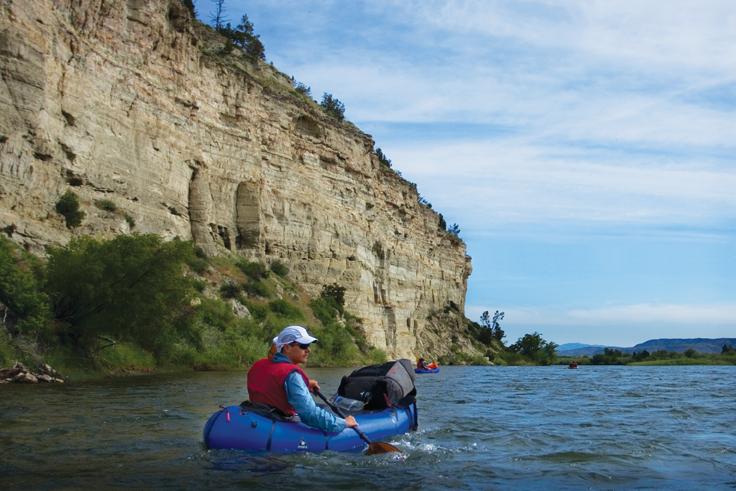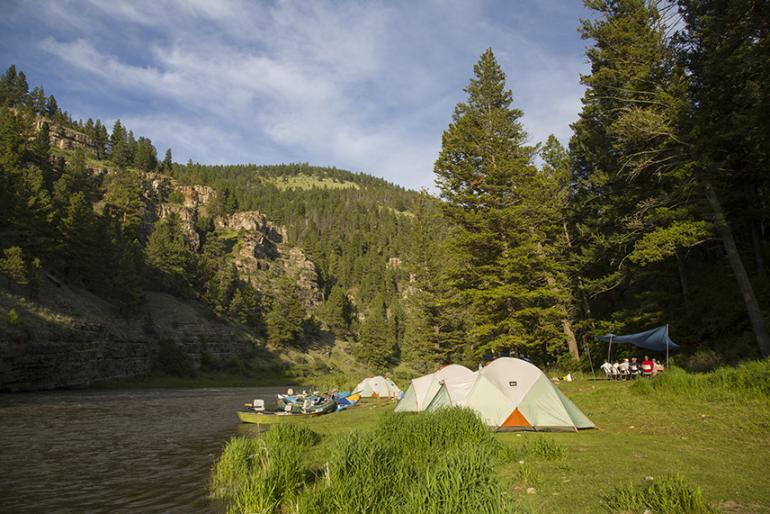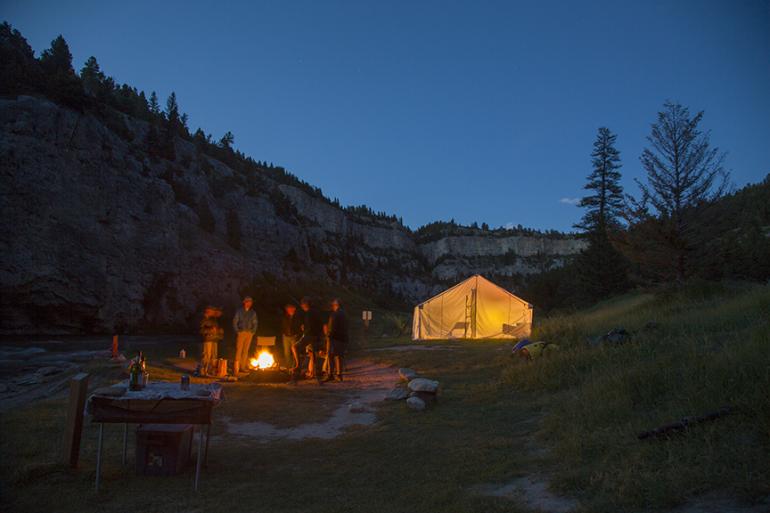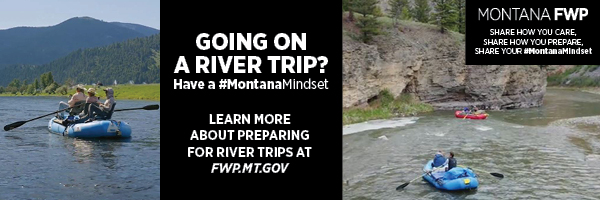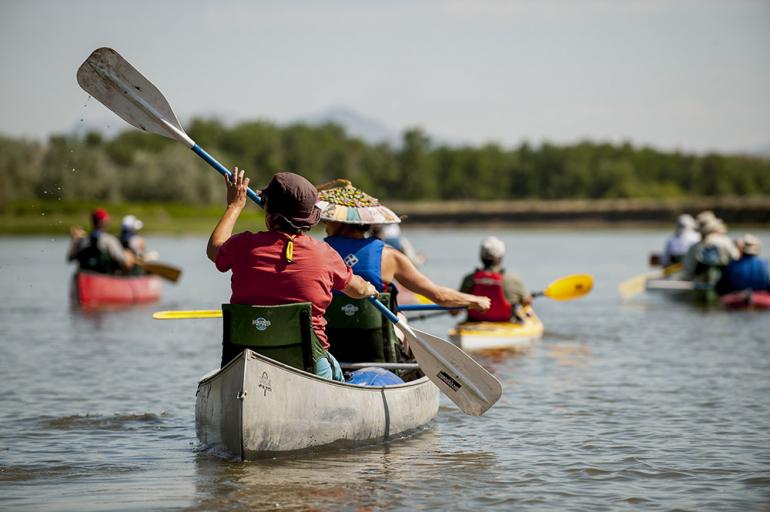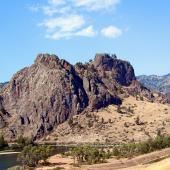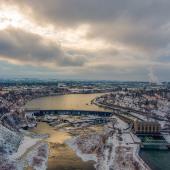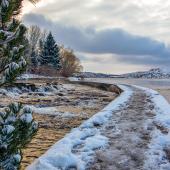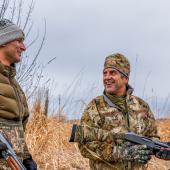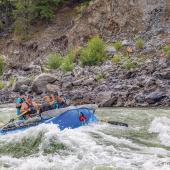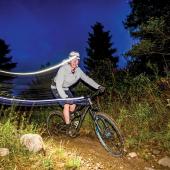Untroubled Waters
Making the most of overnight river trips.
When you embark on a multi-day adventure through Montana's scenic rivers, you'll immerse yourself in the tranquil beauty of the landscape. A pristine campsite is the ultimate reward after an exciting day on the river. Few things compare to the enjoyment found on a camping adventure—sharing stories with friends, connecting with nature, and unplugging from daily life. As you immerse yourself in the tranquil silence under the stars, let the sounds of nature dominate the landscape.
Campsite Regulations: Montana's camping rules differ from river to river. Before embarking on your trip, check the camping requirements and regulations on the river you intend to float. In some areas, you may camp within the ordinary high-water mark. Other areas may require you to stay at designated sites. Reservations or permits may be necessary. Diligent research and planning will help you avoid unexpected surprises, and ensure a memorable camping experience.
Boat Safety: River levels can fluctuate through the night. When you reach camp, be sure to choose a stable location to anchor your boat. Use an appropriate anchor, or a stake with proper tension, to ensure it won't drag or become dislodge during changing water levels.
Prepping the Campsite: Set up your tent kitchen area, fire-pan, portable toilet, and the rest of your camping equipment on hard, durable surfaces. Avoid impacting the vegetation and natural beauty of the area. Concentrate your movement to established trails to reduce erosion on the stream bank. Refrain from digging trenches, driving nails into trees, or any other activities that will cause lasting damage.
Outdoor Restroom Etiquette: To sustain a healthy river and clean camp, all river runners should pack out solid human waste. You can use commercially available disposal bags or sealed toilet systems that securely contain human waste. Or, use a washable and reusable toilet system with RV dump fittings. Liquid waste should go directly into the main channel of the river to keep beaches and campsites clean and odor-free.
Food Prep & Cleanup: There's something special about cooking and eating in the great outdoors that just can't be replicated at home. Proper food handling, hygiene, and cleanup will help keep you and your companions healthy and energize. After your meals, wastewater from cooking should be strained, and then poured into the main channel of the river. Keep side streams free of soap and oils. Always use bleach-free biodegradable soap, and discard captured food particles with your packed-out garbage.
Proper Food Storage: Montana is home to abundant wildlife, and you are a guest in their home. To avoid unexpected visits from bears or other animals, keep your camp as clean as possible, and never discard, burn, or bury food scraps. Store your food, garbage, and other attractants in bear-resistant containers approved by the Interagency Grizzly Bear Committee. These include bear-resistant coolers, dry-boxes that are bolted or locked on each corner, electrified fences, or established food-storage boxes. Food and attractants can be hung at least 10 feet off the ground and away from tree trunks when feasible. A full list of bear-resistant containers can be found at igbconline.org.
Fire Safety & Etiquette: Campfires are a quintessential part of camping. Keep warm and gather to share memories from the day, as the nature around you provides a haven for deep human connection.
Bring a fire-pan for all campfires. Fire-pans should be rigid metal, with sides tall enough to contain the ash. It's recommended to elevate your pan over a fire blanket for additional safety and easy cleanup. Don't construct fire rings with rocks, or build fires on beaches. Bring locally-sourced firewood, or collect and use only dead-and-downed wood. Do not cut trees or break branches to use as firewood.
Montana is prone to wildfire, and one careless mistake can destroy the landscape we all cherish. Follow any fire restrictions that may be in place. Use established metal fire rings and designated camp areas if provided. Burn only wood and paper, and keep fires small. Allow logs to burn completely to ash. As the evening concludes, make sure your fire is drowned using water so the ashes are cool to the touch. Remember, fireworks are always prohibited on public lands.
Leaving Campsite Tips: As the sun rises on another day of epic adventure, make sure you leave your campsite better than you found it, so that the next visitor can experience a pristine and natural campsite. Pack out all garbage and litter—even if it's not yours—and check for micro-trash that may be hidden, as well as unused wood and ash. Disperse rocks used for tents or left by previous visitors, and ensure that you leave no trace.
As you plan your journey on the river, remember that you are a guest in this incredible natural world. Follow the above tips for an unforgettable experience that builds a deep personal connection with Montana's rugged landscape. Recreate with humility and respect. The thrill of discovery you experience, and the feeling that you're the first person to explore these pristine rivers, is thanks to visitors before you who minimized their impact. You, too, can leave that same feeling for the next adventurer.

